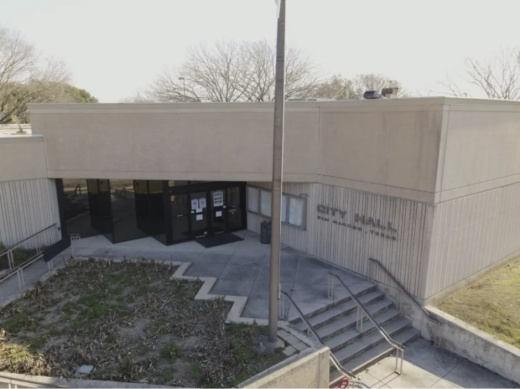San Marcos City Council voted Aug. 3 to absolve the $1.2 million in utility bills that hundreds of residents have found themselves unable to pay since the beginning of the coronavirus pandemic.
In March 2020, at the beginning of the pandemic, City Council moved to stop utility service disconnections. Members continued to extend that extension, preventing disconnects through all of 2020 into this year.
That extension was set to expire Aug.1, and the city had allocated about $700,000 in general funds to pay for a large chunk of the delinquency. Residents whose jobs or lives were affected by the pandemic or the February winter storm could apply to the city’s utility assistance program if they have an account that is more than 60 days past due for up to $1,500 in assistance.
Since the program began, the city has provided $457,000 in assistance to 507 accounts, but there is still $1.2 million in outstanding debt on the books. After the city applies the $700,000 to the current debt amount, about $500,000, will remain.
While discussing how much available funding to put toward the program Aug. 3, Council Member Shane Scott had another idea.
“Why don’t we just forgive the debt and move on?” Scott said. “Why don’t we just let it go and start billing people next month?”
The comment late in the evening made everyone on City Council and staff perk up. Discussion prior to his suggestion concerned better public awareness of the program.
“Mr. Scott, we have less than $700,000 available, and there’s $1.2 million owed,” Mayor Jane Hughson said.
Scott frequently voiced frustration that the utility assistance program has been on the council's agenda too frequently.
“You know what, mayor? We own the electric company. If we forgive the debt, it really wouldn’t have a significant effect on the utility," he said.
San Marcos Electric Utility is municipally owned and -operated, and it purchases wholesale power from the Lower Colorado River Authority.
As of the end of July, almost 1,100 residential accounts were considered delinquent in San Marcos, 865 of which were delinquent for greater than 90 days.
Hughson and Council Member Mark Gleason pushed back, suggesting that forgiving debt without forcing people to do something to address it sends the wrong message.
“What about the people that struggle to pay their bill? What if it raises rates?” Gleason said. “We were just able to get a good bond sale because we got a good rating. I’m not going to run the risk raising the rates on the people that did [pay their bills] because of this,” he said.
Council Member Alyssa Garza said she took flyers all over her neighborhood looking for her missing cat and brought flyers for the assistance program along with her. Garza said no one knew about the program.
"I don’t know about the financial implications, but I know about the implications of a single mom who all of a sudden can’t shower but has a job interview the next day,” Garza said. “A lot of folks, they’re hanging on by nothing.”
The council voted 5-2, with Hughson and Council Member Melissa Derrick voting against the measure.
They all did agree, however, that the city would return to reinstating late fees and disconnections beginning Sept. 1. Compared to other Central Texas utilities, the only one that is still not disconnecting service due to late payment is City Public Service in San Antonio.
Speaking by phone Aug. 4, Nadine Bonewitz, a communications specialist for the city, said that the funds would go toward any residential account that is delinquent, not just those residents who previously applied for the utility assistance program. Commercial accounts are not part of the program.
Bonewitz said the remaining roughly half-million dollars would have to be dispersed from different departments in the utility based on where each delinquency comes from.





